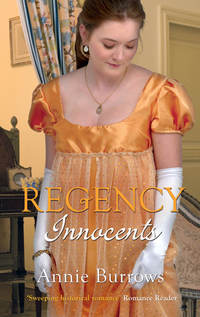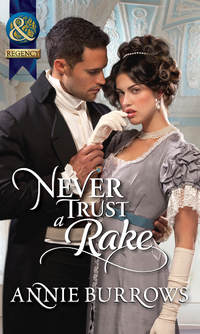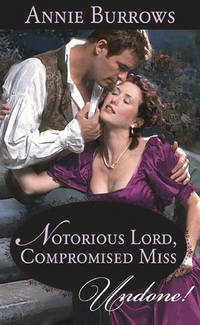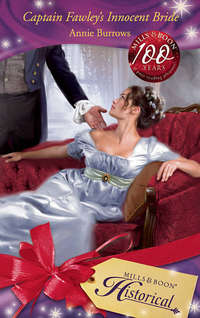
Полная версия
Four Regency Rogues
‘Good. Tell me what you have done and what about the people? They must have been glad to see you again.’
They joined Geoffrey’s wife, Elizabeth, in the drawing room and he spent the next two hours talking about Amerleigh and the villagers, and the longer he talked, the more he realised just how much it all meant to him. Everything. The Hall, the village, the people like the Biggs family, especially Tommy. And Charlotte, of course. He could not imagine life without her. Where was she? Would he be able to find her?
He rose early the following day and, leaving his carriage and horses in Geoffrey’s stables, took a cab to the docks. Liverpool had become a very busy port, beginning to rival Bristol in the number of ships that put in there, much of it down to slave trading, though now that had been outlawed, the ships carried manufactured goods and the only human cargoes were emigrants. The dock basin was a forest of masts and several ships were loading and unloading at the quayside. The Fair Charlie was well known and he soon learned that it was more than two weeks overdue. Miss Cartwright had been there the day before, he was told at the harbour master’s office, but they had no idea where she went after leaving them.
He stood looking about him at the throng of people—dock workers, sailors, voyagers. Where next? What would he do in similar circumstances? Keeping the workforce supplied with raw materials must be her first consideration. He set off for the dockside warehouses. After plodding from one to the other, he finally tracked her down. There was no mistaking her working dress and the chestnut hair blowing about her face. She was pushing it out of her eyes with her hand and talking fast and furiously to a man standing beside a stack of bales of cotton. Roland walked slowly towards her. She had not seen him and continued to argue with the man. ‘How much will you take for it?’
‘Naught. It’s bought and paid for and only waits on the barges to deliver it.’
‘I’ll give you more, and you can take the cargo of the Fair Charlie when it arrives. Sugar from my plantation, cotton and tobacco from America.’
‘If it arrives,’ he said with heavy emphasis. ‘I am not a gambling man, missus. Now, you go home to your husband and leave business matters to him.’
‘Husband!’ She was furious. ‘Do you know who I am?’
‘No, nor do I care.’
Roland stepped forward. ‘Mind your manners, sir. You are talking to a lady.’
Charlotte swivelled round to face him, her face a picture of astonishment, quickly followed by an expression of irritation, while the cotton trader turned to him in evident relief. ‘Ladies should keep out of what don’t concern them.’
‘This lady is the owner of Cartwright’s mill.’
‘I care not what she owns. I do not break a binding contract for anyone—I’d never get another. Take her away, back to her embroidery, and explain to her it cannot be done, not for all the money in Christendom.’
Roland took her elbow and drew her away. ‘Come, my dear, you will do no business with this fellow.’
‘What the devil are you doing here?’ she demanded as soon as they were out of earshot.
‘I came to buy timber.’
‘In a cotton warehouse! You are roasting me.’
‘No, I am not. I was on my way to the timber yards when I spotted you. You seemed to be having some difficulty…’
‘Not at all. I was simply bargaining for the cotton.’
‘So I perceived, but if the man has already been paid for it, you can hardly expect him to sell it again to you.’
‘No, I suppose not, but I have tried everywhere else, all my father’s old contacts, the ships unloading at the quay, and none have cotton to spare. I suppose it is that damned war.’
‘Shall we find somewhere to have some refreshment and talk?’ he said, smiling a little at her unladylike language, but making no comment on it. ‘You can tell me all about it.’
‘Why should I?’
‘Oh, do not be so independent, Charlotte. I only want to help.’ He was conducting her along the busy street, making a way for them through the crowds towards the centre of the town. ‘Where are you staying?’
She was too unsettled to notice his use of her given name. Unsure whether to hate him for his interference or to be thankful that he was there, his hand under her elbow, protecting her, she did nothing to pull herself from his grasp. ‘I stayed last night with the family of my ship’s captain. His poor wife is worried to death and I thought to comfort her. I hoped to have my business done and to start for home today.’
‘It is too late to make a start now, you would be travelling through the night.’
‘I do not mind that. I cannot impose on Mrs Scott a second night. Talbot is very capable.’
‘So he may be, but anything could happen. There has been prodigious rainfall lately and the potholes are ruinous.’ What he did not say was that if she insisted on going home in the dark, then he would have to follow. Bennett was considerably older than Talbot and could not be expected to do it. He could, of course, drive himself, but it would be safer if neither of them attempted it. ‘Where have you left your coach?’
‘At the livery stables next to the posting inn.’
‘Then we will go and fetch it and then go to my cousin’s. He lives but five miles out of Liverpool. He is a family man and I am sure his wife will make you comfortable. We will go home tomorrow.’
‘I cannot do that!’
‘Why not?’
‘Because I cannot.’ It was said with little conviction.
‘Do you have a better idea?’
She did not, except to insist on Talbot driving her home in the dark. She might be able to doze in the coach, but he could not. He would have to keep all his wits alert to avoid the potholes and stay on the road, and supposing tiredness overcame him and he fell asleep? She hated admitting the Earl was right. ‘You are not bamming me?’ she asked. ‘Your cousin is a respectable married man and his wife is at home?’
‘I swear it,’ he said, crossing himself, though he could not help laughing.
‘It is not a laughing matter, my lord. I have two hundred workers who will be without employment in the next two days if I cannot produce some yarn from somewhere.’
‘Have you tried asking nearer to home?’
‘What do you mean?’
‘Why, Sir Gordon Brandon. Surely as a friend he would help you out?’
‘He may be a friend, my lord, but he is also a competitor.’
‘Would you help him if he were in trouble?’
‘Of course.’
‘There you are, then.’ They had arrived at the coaching inn where Talbot was enjoying a tankard or two of ale in the parlour, waiting for his mistress to return. He was relieved to see her and even happier to find her in the company of the Earl. He was told to order the horses to be harnessed and ready to leave while the Earl and his mistress had something to eat and drink.
They did not dawdle over it and were soon sitting side by side in her luxurious coach on their way to Geoffrey’s. She was silent, her head full of problems that seemed insoluble, and all her senses alert to the man beside her. Why did he want to help her, when he held her in such contempt? What motive did he have except her utter humiliation? He had achieved that once before and though she was ready to concede that his father had perhaps driven him to it, since coming home he had given no indication that he was sorry for it. He was such a mixture of arrogance, obstinacy and old-fashioned chivalry, there was no understanding him. They worked together in complete harmony when it came to helping the villagers and teaching Tommy, and yet there was about him a hidden reserve, as if he were afraid to let her see anything of the inner man.
‘You have not done anything about your timber,’ she said.
‘It will do another time.’
‘There never was an errand for timber, was there?’
‘Indeed there was. I need new wainscot for the dining room at the Hall.’
‘I would have expected the builders to deal with it.’
‘That is the second time you have questioned my truthfulness, Miss Cartwright.’
‘No, only your common sense. You do not seem able to delegate, but must do everything yourself.’
‘It is as well I did on this occasion or you would have been in a scrape, thrown into a ditch somewhere and your coachman injured, if not killed.’
She began to shake with laughter.
‘I do not see how you can find such a prospect humorous,’ he said stiffly.
‘I was reminded of Mr Halliwell and his fat wife with the bright orange hair. She took you for a labourer and Tommy for your son.’
He found his own lips twitching. ‘But it could have been much worse, you know.’
‘I know.’
‘Then concede I am right and we would do well to delay our departure until daylight.’
‘I concede nothing. It would only puff you up.’ She turned towards him. ‘How did you know I was in Liverpool?’
‘I never said I did.’
‘No, but you were not surprised to see me. It was as if you had been on the lookout for me, and you gave up your own errand without a moment’s hesitation. I have learned the hard way how to detect a dissembler, my lord.’
He gave a rueful smile. ‘I should hate to be thought a dissembler, which is only one step above a liar. I went to Mandeville to call on you and found a distraught Lady Ratcliffe. She is not used to your ways, you know, and was quite convinced you would fall into a bumblebath of one kind or another.’
‘So the knight errant set out to rescue a damsel who did not need rescuing.’ She paused. ‘Why did you go to Mandeville? There is nothing wrong with Tommy, is there?’
‘No, I left him having his lesson. I went because I had something to say to you.’
‘Then say it. You will never have a better opportunity.’
‘Browhill…’
‘What about it?’
‘If it is causing you problems…’
‘Now, where did you get that idea, my lord? I have no problems with Browhill. The seam is being worked and producing barytes at an acceptable rate.’ Barytes was a heavy white mineral used mainly in the manufacture of paint and fetched a good price on the open market.
‘Nothing has changed, then,’ he said, leaning back in his seat. She was still as prickly as ever about that mine. He did not feel disposed to appear to capitulate. A man had his pride after all.
‘No,’ she said, unwilling to let him see how disappointed she was. That damned mine stood between them, like the rock in which it was worked. The past could not be wiped out, any more than she could wipe out the memory of his callous words six years before. And what did it matter anyway? They might work together for the good of the village, but they would never be more than neighbours.
They fell into silence and a few minutes later turned into the drive of Geoffrey’s house and drew up outside the door. Talbot dismounted and beat a tattoo on the door, while Roland handed Charlotte down and, putting his hand beneath her elbow, guided her towards the entrance. In next to no time she was being introduced to Mr Geoffrey Temple and his charming wife, Elizabeth, in the elegant drawing room.
‘We are at your mercy,’ Roland told them. ‘Miss Cartwright’s business took longer than she thought it would and it is too late to start back to Amerleigh tonight…’
‘Of course it is,’ Elizabeth said, a little taken aback by Charlotte’s grey skirt and military style jacket. ‘Do please stay here. Roland is always welcome and any friend of his is welcome too. We are about to have supper. If you excuse me, I will go and alert Cook that we have guests and have a room made ready for Miss Cartwright. Roland was here last night and we thought he might return so his bed is still made up.’ She bustled away.
‘Oh, dear,’ Charlotte said to Geoffrey. ‘I fear I am imposing. After all, I am a stranger you never heard of before now.’
‘Oh, but we have heard of you. Roland spoke of you last night.’
She looked sharply at Roland, who covered his embarrassment with a chuckle. ‘Nothing bad, I do assure you,’ he said. ‘I was telling Geoffrey about Tommy and our plans for a school for deaf children.’
‘Yes, tell me more,’ Geoffrey said. ‘I might be able to interest others.’
While they waited for supper to be served and over the meal itself, Charlotte, who had not expected to be dining out and had therefore been unable to change, explained that she had come to take an interest in Tommy because his older sisters worked at her mill. From there, with gentle prompting from Geoffrey, she talked about the mill and the Fair Charlie and her fears that it might be lost.
‘The Fair Charlie,’ he said. ‘I have heard of her. A good ship with a very good captain. I am sure he will bring her safely to port.’
‘I hope so for everyone’s sake. Captain Scott has a family who are very worried about him and I have hundreds of workers waiting for her cargo.’
‘She used to be a slaver, I believe.’
‘Yes, but my father gave up the trade years ago.’
‘Do you still own slaves?’
‘No, sir, I do not.’ It was said very firmly. ‘The workers on my plantation are free men and women working for wages. I do not believe any man or woman should be the chattel of another.’
Roland, who had been listening to this exchange without interrupting, turned to her in surprise. ‘I did not know that.’
‘You do not know everything about me, my lord.’
‘Evidently not. What next? I wonder.’
‘I must say, I admire you,’ Elizabeth put in. In order not to embarrass her guest, she had not changed from her day dress, a simple act of courtesy that Charlotte appreciated. ‘To have so much responsibility at such a young age must be daunting.’
‘I have been brought up to it, Mrs Temple.’
‘You must have people around to advise and help you.’
‘Of course. My father used to say the secret of good business was being able to trust the people around you and I have certainly found it so. But the final decisions are mine.’
‘You have never married?’
‘No.’
‘A husband would surely take the weight from your shoulders.’
Charlotte laughed. ‘He would take all of it and me with it.’
‘Miss Cartwright enjoys her independence,’ Roland said. He had learned more about her in the last two hours than he had the whole of the time he had been back from the war, and he wondered why she found it so easy to talk to his cousin and not to him. Why, when he accused her of owning slaves, had she not corrected him? Why did they strike sparks off each other? Why, when he wanted to make a concession, did she block it by saying something to stop him? Why, when she showed herself to be a compassionate and caring employer, did he have to goad her into proving otherwise? Why, when all he wanted to do was help her, did she disdain him?
‘Independence can be an impediment if taken to extremes,’ Geoffrey said thoughtfully. ‘It prevents you from accepting help when offered.’
‘Mr Temple, I hope you do not think I am ungrateful for your hospitality, because I assure you that is not the case at all…’
‘Good heavens, ma’am, I never meant that. I was about to say I may be able to help you over the matter of the cotton. I am well known among the merchants of Liverpool and indeed further afield, and while my own expertise is in wool, I do have connections in the cotton trade.’
‘If you can help, sir, I will most certainly accept it with gratitude.’
‘How much do you need and how much are you prepared to pay for it?’
Charlotte became more animated, as if a weight had indeed been lifted from her shoulders. Roland watched as she answered his cousin, explaining the types of cotton yarn she needed to fulfil her most pressing orders, the amount and quality of each, and he marvelled. She was knowledgeable and astute—made that way by a father she did not always agree with—but, even in that strange garb, every inch a woman, young and beautiful and very desirable. He found himself suddenly wanting to tell her so.
The meal ended and the ladies retired to the drawing room, leaving the men to their port.
‘An extraordinary woman,’ Geoffrey said, handing Roland the bottle from which he filled his glass.
‘Yes,’ he said, giving the bottle back.
‘Entirely unmarriageable, of course.’
‘Do you think so?’
‘Oh, no doubt of it. No husband worth his salt would put up with her ways.’
‘Surely that depends on the husband,’ Roland said thoughtfully.
‘He would have to be a jackstraw, prepared to subjugate himself for an easy living.’
Roland laughed. ‘There are plenty of those about.’ He paused. ‘Can you really track down cotton yarn for her?’
‘Some, probably not all she needs, but enough to keep her going for a week or two.’
‘You have my grateful thanks.’
‘Your thanks? Does that mean she is more to you than a mere neighbour?’
‘She is a delightful adversary.’
‘Adversary? You mean over Browhill? Is it that important?’
‘I thought it was because of what it meant to my father and also because it has always been part of the estate, but now I am not so sure. What do you think? You are, after all, my heir.’
‘For now, yes, but what is that to the point? You will marry and have a nursery full of children.’
‘Perhaps, perhaps not.’
Geoffrey looked searchingly at him. ‘Oh, come, Roly, you are young and virile, of course you will marry. It is a man’s duty, especially when he has an estate like Amerleigh to pass on. There must be any number of young ladies who would jump at the chance to become the Countess of Amerleigh.’
‘I believe there are, but none I would feel comfortable with. And at the moment, recovering the estate is taking up all my time.’
‘Well, I should forget Browhill, if I were you. Amerleigh is large enough without it and it does not do to be for ever at war with one’s neighbours.’ He stood up. ‘Shall we join the ladies?’
Roland swallowed the remainder of his port and followed his host to where Elizabeth and Charlotte were enjoying a comfortable coze over the teacups. Charlotte was sitting on a sofa next to Elizabeth, her grey skirt and frogged coat a strange contrast to the green taffeta afternoon dress that her hostess wore.
Prompted by Geoffrey, who wanted to know what he had been doing the last six years, he spoke of the war. Bearing in mind there were ladies present, he did not go too closely into the cruelty and barbarity he had witnessed, but spoke of the daily routine, the long marches and the countryside.
‘But you liked the life?’
‘Yes. It has its good moments, and I do not mean the glory of victory, though that is exhilarating beyond anything you can find in civilian life, but the comradeship, the faith and trust we all put in each other. Every man’s life depends on the man next to him.’
‘What about the women who go to war?’ Charlotte asked. ‘How do they go on?’
He had smiled. ‘Do you fancy yourself as a soldier, Miss Cartwright? I have known it happen on a very few occasions that women dress in male attire to fight alongside the men, but they are soon discovered.’
‘I did not mean that. I meant wives and camp followers—that is what the women who follow the men are called, is it not?’
‘Yes, and some are the most faithful, stalwart and courageous women I have ever met. They are often wet, cold and hungry and at other times hot and thirsty. And frequently they are very close to the fighting.’
‘They walk?’
‘Most of them. Some of the senior officers’ wives have carriages, but the terrain is often difficult and frequently they are obliged to abandon them or fall behind and then they become prey to bandits. I would not recommend it, Miss Cartwright.’
‘You evidently do not think a married man should take his wife on campaigns.’
‘No, for if their husbands are killed, they are left entirely alone. Many marry again immediately in order to have some protection. I would never subject a wife of mine to that possibility.’
‘How dreadful,’ Elizabeth put in. ‘They cannot love their new husbands.’
‘I doubt love is even thought of.’ He paused and smiled. ‘Though you would be surprised at how often love does thrive in such unpromising circumstances. I have seen devotion of wives for husbands and husbands for wives, which is an example to us all. And liaisons made out of necessity that have stood the test of time.’
‘But you remained immune?’ Charlotte queried.
He looked closely at her, wondering what had prompted the question. ‘Miss Cartwright, I am unwed, as you well know.’
‘Unwed, yes, unloved—perhaps not?’
‘Now that is something else entirely, and we were not speaking of me, but of soldiers in general.’
Realising she had gone too far with her questions, designed to learn more about the man himself, she quickly changed the subject and began to ask him what he thought the outcome of the allied deliberations might be, which led to a general discussion about the future, and that led to the state of the harvest and trade in general, and on that subject Charlotte was easily able to hold her own.
The harmony of the evening should have prepared Roland for a peaceful night, but in that it failed. He slept badly, his mind full of images of Charlotte: Charlotte comforting Tommy, cradling Mrs Biggs’s baby in her arms, dancing wildly with her mill workers, sitting on a nursery chair, giggling like a schoolgirl over the signs they were making; Charlotte on horseback and driving the curricle to an inch, Charlotte in a temper, green eyes flashing; Charlotte, her face creased with worry about the Fair Charlie and its captain. How could he not adore her?
He woke late and went down to breakfast, only to discover that she was up before him and had left. ‘She said she wanted an early start,’ Geoffrey told him. ‘She is anxious to reassure her workers that the yarn is on its way.’
‘Why the devil did you not wake me?’
‘She asked me not to. After all, you have your own coach.’ He smiled. ‘By the way, Elizabeth and I have been invited to a masked ball.’
‘I had forgotten all about that. Will you go?’
‘Of course. I would not miss it for the world.’
‘Then you are welcome to stay at the Hall. I will ask my mother to join us; she will be happy to see you again and show you all the improvements we have made.’
‘Thank you. I shall look forward to it. Now, help yourself to breakfast. I must leave if I am to do anything about that cotton.’ He hurried away, leaving Roland looking down at the breakfast table where the used plates and crumbled remains of bread told of two people having breakfasted.
‘Damn the woman!’ he exclaimed. ‘Damn! Damn! Damn!’ He turned on his heel and went out to the stables to tell Bennett to harness the horses to his carriage. It suddenly seemed important to catch up with her.
Chapter Seven
It was not only her need to be at the mill that had hastened Charlotte’s departure, but something within herself she did not want to face. It was the Earl, of course. He had been courtesy itself all the previous evening, chuckling at her jokes, smiling at her in a way that turned her stomach over and set her heart beating like a drum. She had watched the easy way he dealt with his cousin and Mrs Temple and realised being part of a family, however distant, was something to be envied.
And as they talked, she had learned more about the enigmatic man that was Roland Temple, seventh Earl of Amerleigh. What she could not do was relate the man she had come to know to the youth he had been. If she were truly honest with herself, could she blame him for not wanting to marry her when ordered to do so? Would any man with an ounce of pride do it? If he had meekly done as he was told, she would have despised him. What she found more difficult to explain away was the manner in which he had rejected her. He did not know she had heard him, so there was no reason why he should allude to it, and she would not demean herself by asking.
And now she was beholden to him for introducing her to his cousin, arranging a night’s lodging and, what was more, helping her over her difficulty with the cotton. It was only a temporary reprieve and she would have to face it again if the Fair Charlie did not arrive with raw cotton for the spinners, but it was more than she could have hoped for the morning before when she was combing the warehouses. It had been a very long twenty-four hours, made bearable, even pleasant, by Roland Temple’s intervention. And that galled her.











